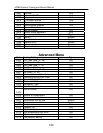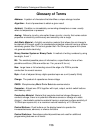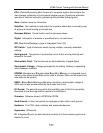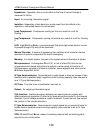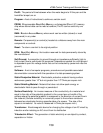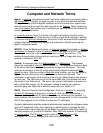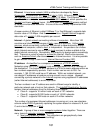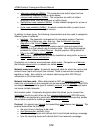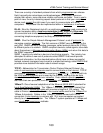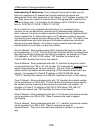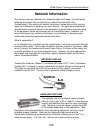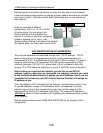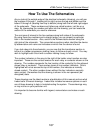
iCOM
Controls Training and Service Manual
Computer and Network Terms
Agent: A
program that performs some information gathering or processing task in
the background. Typically, an agent is given a very small and well-defined task.
Although the theory behind agents has been around for some time, agents have
become more prominent with the recent growth of the
Internet. Many companies
now sell
software that enables you to configure an agent to search the Internet for
certain types of information.
In
computer science, there is a school of thought that believes that the human
mind essentially consists of thousands or millions of agents all working in parallel.
To produce real
artificial intelligence, this school holds, we should build computer
systems that also contain many agents and systems for arbitrating among the
agents' competing results.
BOOTP: Short for Bootstrap Protocol, an
Internet protocol that enables a diskless
workstation to discover its own IP address, the IP address of a BOOTP server on
the network, and a file to be loaded into memory to
boot the machine. This
enables the workstation to boot without requiring a hard or floppy disk drive. The
protocol is defined by
RFC 951.
Cookie: A message given to a
Web browser by a Web server. The browser
stores the message in a
text file called cookie.txt. The message is then sent back
to the server each time the browser requests a page from the server. The main
purpose of cookies is to identify users and possibly prepare customized
Web
pages for them. When you enter a Web site using cookies, you may be asked to
fill out a form providing such information as your name and interests. This
information is packaged into a cookie and sent to your Web browser who stores it
for later use. The next time you go to the same Web site, your browser will send
the cookie to the Web server. The server can use this information to present you
with custom Web pages. So, for example, instead of seeing just a generic
welcome page you might see a welcome page with your name on it.
DHCP: Short for Dynamic Host Configuration Protocol, a
protocol for assigning
dynamic IP addresses to devices on a network. With dynamic addressing, a
device can have a different IP address every time it connects to the network. In
some systems, the device's IP address can even change while it is still connected.
DHCP also supports a mix of static and dynamic IP addresses.
Dynamic addressing simplifies network administration because the software keeps
track of IP addresses rather than requiring an administrator to manage the task.
This means that a new computer can be added to a network without the hassle of
manually assigning it a unique IP address. Many
ISPs use dynamic IP addressing
for
dial-up users. DHCP client support is built into Windows 95 and NT
workstation. NT 4 server includes both client and server support.
160





